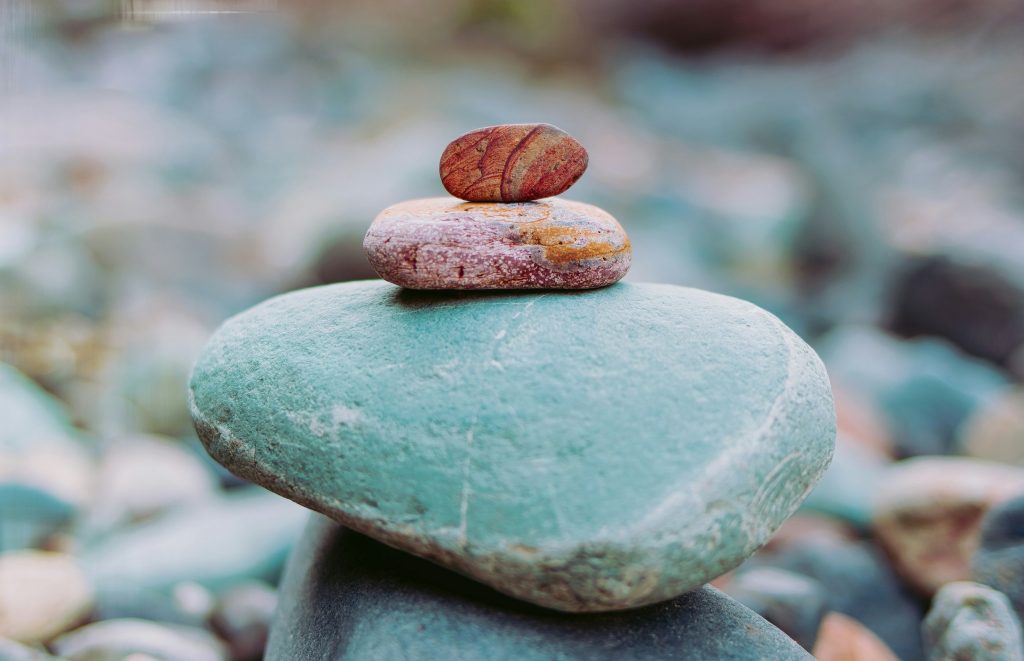As your world continues to change drastically each day, you can rise to the challenges it brings through small daily habits that bring peace and happiness into your everyday life.
With the recent unprecedented changes to social, occupational, and daily living routines, it seems that the world is in a constant state of panicked isolation. These new changes to the familiar flow of our lives bring many challenges, both seen and unseen, that can leave us feeling anxious, alone, depressed, and defeated. At a time when uncertainty is universal, hope may feel out of reach; however, small adjustments to our daily routines can have a profound impact on our mental health. This post acts as part one in a series of posts related to maintaining your mental health amidst the changing conditions of the world. Threats to our mental health are more frequent now than ever; this series presents solutions and ideas to combat threats and encourage goodness.
Medical professionals are beginning to recognize the effects of the world’s newly adopted lifestyle, and they have some strategies that can help us to maintain our mental hygiene while our lives feel out of balance. The first suggestion I will focus on is a strategy called, “MAPS”. The acronym stands for Mastery, Altruism, Pleasure, and Silence. While these terms are familiar to many, their application isn’t overly intuitive, so let’s dive a little deeper into what they may look like for you.
Mastery
Mastery encompasses any activity that leads you to feel a sense of accomplishment. It can be as simple as making your bed or as complex as learning a new language. The idea is that you choose at least one activity everyday that helps you feel a sense of purpose. Write down your tasks, check them off when they have been completed, and reflect on the small victories you have had each day. Acknowledging the things that you have accomplished brings a sense of purpose instead of the regret of wasting another day.
Altruism
An activity that incorporates doing good for another person is considered an act of altruism. Although we may feel confined and restricted in our ability to do good, there are many kind acts that do not require physical contact. For example, calling or video-chatting with a friend or family member, sending a letter, or a curbside delivery of needed groceries are great ways to serve while keeping everyone safe. Keep in contact with those you care about. When we look outside ourselves, our worries and problems lighten and we open ourselves up to happiness.
Pleasure
Do something that you enjoy! For me, cooking has been a delightful distraction from the heaviness of the world. Take time to discover (or rediscover) the small things that bring you joy. Create something new; go for a walk; try out painting; take a long shower. If you anticipate that some activities may not be enjoyable, try it out anyway. Even “faking it” can lead to eventual enjoyment that will be essential in the long run.
Silence
This strategy may seem counterintuitive, but research has proven that having a period of silence each day allows our brain to settle and be mindful in the moment. Social media, television, and even your favorite music need to be silenced in order to enjoy the anti-anxiety effects of mindfulness and silence. Turn off your phone, close the computer, pause the episode, and take a deep breath. Don’t think about what you ate for breakfast or the laundry that needs to be folded tonight; think only of the moment you are living in. Focus on your breath, the sensations that you feel, the smells around you, and let the silence set in. Daily periods of silence ultimately activate your parasympathetic nervous system, allowing you to rest and digest properly.
The strategies are not meant to be performed perfectly or act as another item on an endless to-do list, but rather provide direct access to improved mental health, a sense of hope for the future, and a feeling of peace that appears so out of reach lately. Big or small, making these simple daily efforts can lead to significant changes in your attitude and mental health. The current condition of the world is unsettling. Discouragement, fear for the future, anxiety and uncertainty may occupy our thoughts frequently, but we can create moments of purpose, solace, and joy as we master small tasks each day, serve others around us, do the things we love, and take time to be silent.
Melissa Cluff is a licensed marriage and family therapist based in North Texas, providing face-to-face and telehealth therapy options to clients in Texas.
Lydia Judd is a senior at Brigham Young University studying psychology. She lives in Dallas, TX with her husband where she works as an RBT at Blue Sprig Pediatrics.


